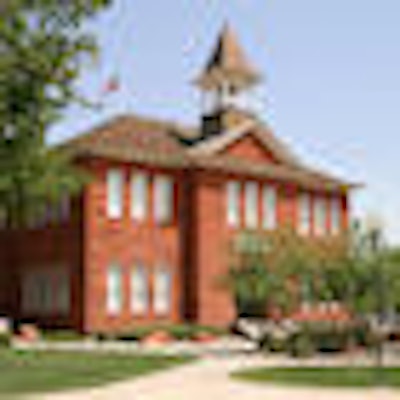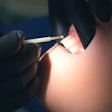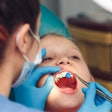
A bill to ban dentistry in Louisiana schools passed today in the state's House Health and Welfare Committee but with new amendments that make exceptions for underserved areas.
The committee devoted most of its hearing today to testimony from Barry Ogden, executive director of the Louisiana State Board of Dentistry. Ogden said the committee had found no problems with dentists in schools so far. "It's been a nonissue up until now," he said.
But he doubted that school gyms could be sanitized as well as dental offices. "Let's remember that we all get sick from our kids," Ogden said. "That's where there are more health problems than anywhere else."
He said it could be challenging for the board to follow up if there were complaints about a school-based dentist because the dentist could be in one school one day and another school another day.
The board is working on new regulations for mobile dentistry, including dentists in schools. But the committee defeated a motion to defer legislation for a year while the board completes that work.
Leaving the bill up to the state dental board could make it vulnerable to action by the U.S. Federal Trade Commission (FTC), which opposes the Louisiana bill on the grounds that it is anticompetitive. The FTC has jurisdiction over state dental boards but not state legislatures.
As originally written, the bill would bar all dentistry in schools except for dentistry done by federally qualified health centers; fluoride treatments, cleanings, and exams when offered for free; or sealants applied by either of two state-run universities.
The amendments give the state dentistry board authority to designate "underserved" areas within the state where full-service for-profit dentistry would be allowed in schools, and to choose a mobile provider to work in schools in such areas. It also allows sealants to be administered by people who are not affiliated with the universities.
The amendments do not specify what criteria the board would use to determine that an area is underserved or to choose a provider.
Other amendments allow full-service dentistry by permanent school clinics and government-owned mobile units in addition to federally qualified health centers. But they ban any such programs that haven't been in operation for at least six months in the past five years.
Ogden's testimony took up most of the hearing. More than 50 people attended to testify against the bill, including many educators, but only one had a chance to speak.
Herb Flood, D.D.S., a private practice dentist who has an office-based practice in Mandeville, LA, said that access to dental care in Louisiana was a "crisis."
"There's a little secret that no one will actually come up here and admit and tell you: There are not enough dentists in the state of Louisiana," he said. "We [dentists] reap the benefits of that, but there are just not enough. So the entire state is underserved."
After the hearing, Gregory Folse, D.D.S., whose company Big Smiles provides dentistry in schools, said that amending the bill to allow school-based dentistry in designated areas undermines the argument that the practice isn't safe. If the bill passes, he anticipates that school-based dentistry will be allowed only in rural areas where there is less competition among dentists. "This is now just an anticompetitive bill," he said.
It's unfair that the committee had allowed advocates more than an hour of time to testify and opponents only about 20 minutes in two days of hearings, Dr. Folse said. "This is not an open and honest debate," he said.
The Louisiana Dental Association (LDA), the primary supporters of the legislation, issued a statement praising it. "Today's vote is a vote for our state's children," said Marty Garrett, D.D.S., head of the LDA's Access to Care Medicaid task force, according to the statement. "All children deserve the highest quality, ongoing, comprehensive dental care throughout their childhood and regardless of their economic means."
The bill goes next to the floor of the House, where it could be heard as early as this week, but it has not yet been scheduled.
Copyright © 2009 DrBicuspid.com

















